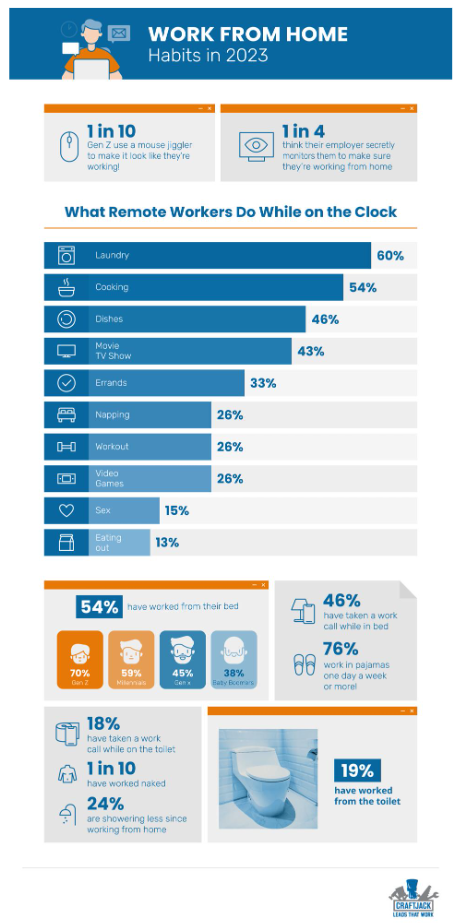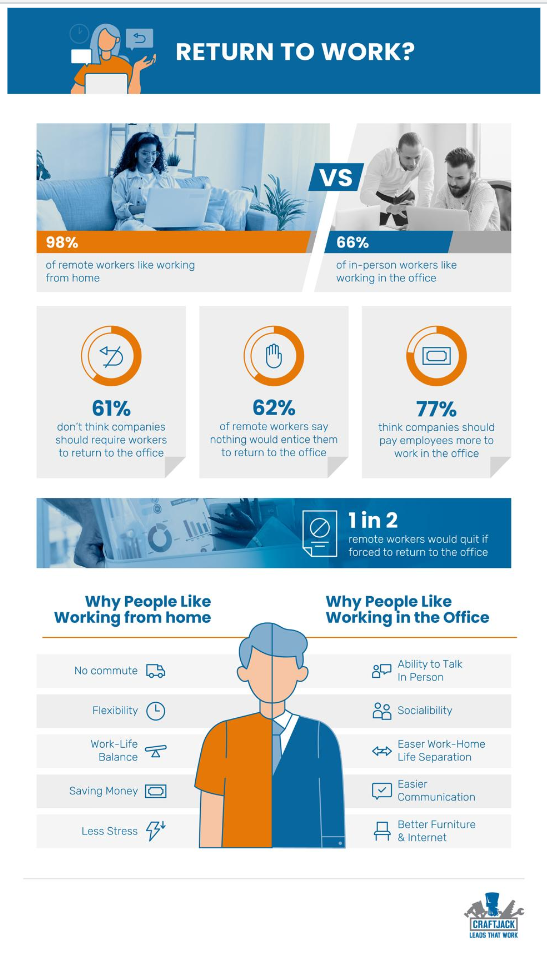
Anxious About Returning To Work? The Neuroscience Of Social And Reentry Anxiety
October 3, 2023
The Neuroscience Of Loneliness—And 12 Proven Cures
November 13, 2023
*As originally seen on Forbes.com
It’s a mess out there in the ongoing WFH vs. RTO battlefield…
- Grindr recently told all 178 employees to return to the office at least two days a week last month…and roughly 45% resigned
- Deloitte reported that 66% of remote workers would quit their jobs if they had to go back into the office five days a week
- BambooHR polled 57,000 workers across 1,600 companies and found that employee sentiment dropped 10x faster since January 2023 than in the previous three years
- ADP Research Institute hit its lowest level of employee motivation in August since June of last year.
Does RTO = Low Motivation?
Can low motivation at work be attributed only to RTO mandates? I think there’s a cultural issue there too. See what you think of USC’s research on motivation in our infographic here.
With increasing Return to Office (RTO) mandates, it’s looking tricky for the committed Work From Home (WFH) gang…
One of the key issues is can people be responsible enough to handle WFH long-term?
What about the missed opportunities that RTO provides, like informal idea generation, bonding, convos that happen in the hallways that foster innovation or collaboration, even getting a promotion or pay raise (since you’re continuously demonstrating your value via ideas and results?)
Let’s look at a new report on remote work habits and trends in 2023 and decide for ourselves.
This nationwide survey found that for WFH:
· 46% admit to taking a work call in bed
· 18% have taken a work call while on the toilet
· 1 in 10 have worked naked,
· 3 in 4 work in their pajamas at least one day a week!
And when asked about returning to the office, 62% of remote workers say nothing would entice them to go back and 1 in 2 would quit if forced to return.
Here’s what remote workers do while on the clock:
But there’s an upside too:
· 81% reported it’s easier to eat healthily
· 39% think WFH has improved their mental health
Hmmm… so some good, some bad. Let’s look at pros and cons.
What’s Best For Your Business: WFH or RTO (Which Means Hybrid)
Check out this graphic and see what you think:
In an informal poll of my executive coaching clients what I’ve found is:
· if you’re highly accountable and productive, aren’t on a leadership growth path, aren’t needed to be in lots of brainstorming/innovation meetings and informal gatherings, WFH is fine
· if you are on a leadership growth path and want to get paid more, and you need to be in lots of brainstorming/innovation meetings and informal gatherings, RTO is likely going to be what you’ll want to do
· Note RTO does include hybrid, as most of our clients’ teams work in the office 3 days/week
What do you think is the best model for business success: WFH, RTO, or Hybrid? And which roles succeed in which venues?







